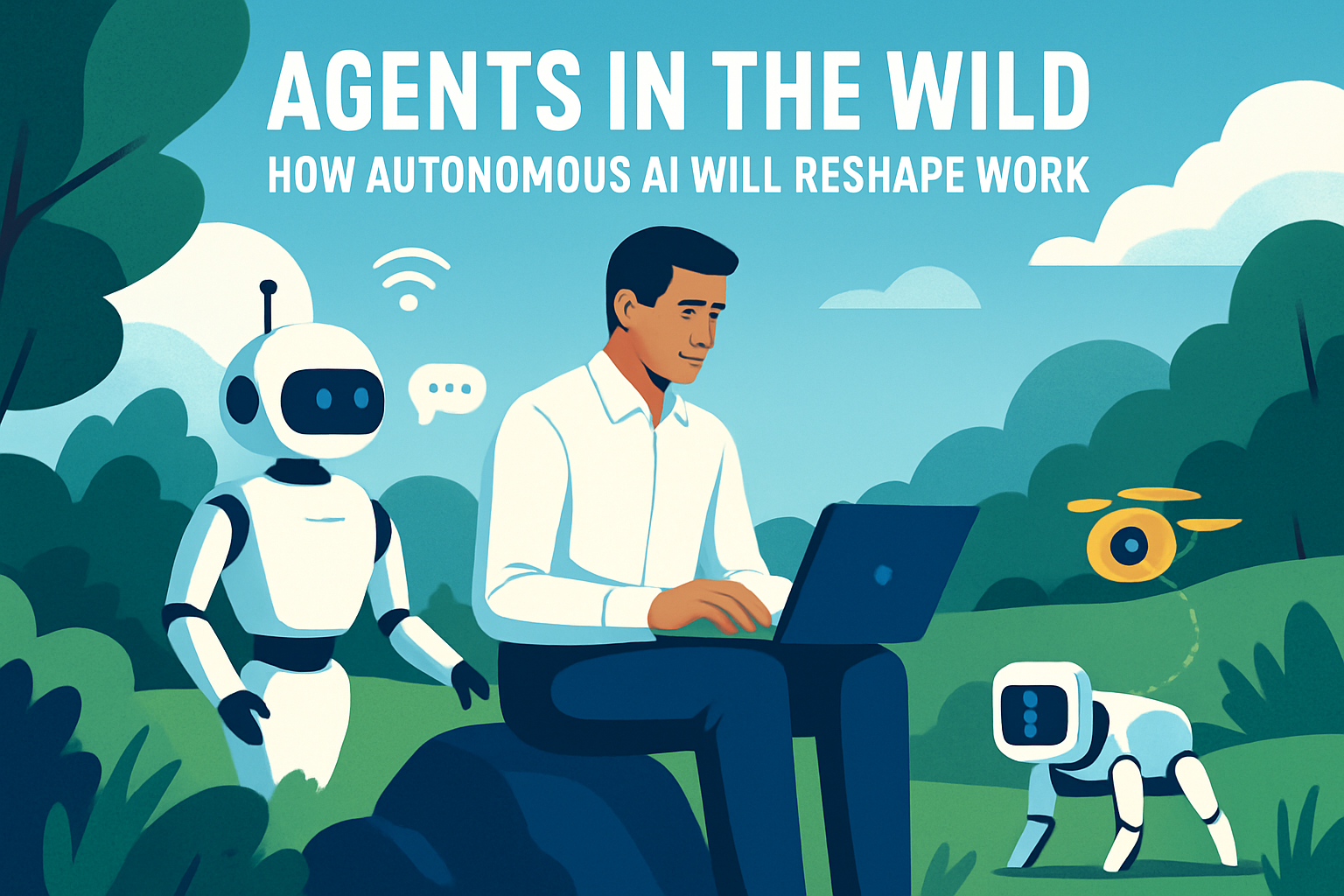Not long ago, artificial intelligence was something we interacted with through tightly controlled tools: a chatbot that could answer questions, a productivity assistant that generated text or code, an app that helped automate a narrow task. These were safe environments, where the limits were clear and the expectations managed.
But now, we’re entering a new phase. AI is no longer confined to sandboxes. Agents are moving “into the wild”, operating in live environments, interacting with other systems, and taking initiative on behalf of their users or organizations.
This is more than just an evolution in technology. It’s a shift in how work itself is organized, how companies operate, and how leaders think about responsibility and trust.
From Tools to Colleagues
For decades, we’ve designed software as tools, things we pick up, use, and put down. AI agents break this pattern. They can act continuously, monitor environments, and even collaborate with other agents. Instead of waiting for a human prompt, they anticipate, adapt, and execute.
This means we will soon experience the workplace not just as humans collaborating with humans, but as humans and AI agents working side by side. The first wave of these agents will be specialized, scheduling meetings, analyzing data streams, drafting reports. But the real impact comes as they begin to chain tasks together and make decisions in uncertain environments.
The New Organizational Operating System
Think about how companies were transformed by ERP systems or the shift to the cloud. These technologies didn’t just make processes faster, they changed how organizations were structured. AI agents will do the same, but at a more granular and pervasive level.
Instead of workflows being designed from the top down, we may see them emerge dynamically as agents coordinate tasks among themselves. This is a world where:
- Agents negotiate contracts and prices in supply chains.
- Internal knowledge is surfaced and synthesized without a human ever “asking.”
- Entire project drafts are prepared overnight while the team sleeps.
Work will feel less like executing a process and more like guiding and orchestrating a constantly shifting system of human–AI collaboration.
Trust, Autonomy, and Risk
When agents move into the wild, the stakes rise. We’re no longer just asking, “Can this AI generate a good output?” but “Can I trust this agent to act on my behalf?”
Leaders will need new governance models to decide:
- What kinds of decisions can be delegated to agents?
- How is accountability shared between human managers and digital colleagues?
- What guardrails ensure safety without stifling innovation?
In many ways, this mirrors the challenges of human delegation. The moment you trust someone else to represent you, you take on risk. The difference is that agents don’t get tired, don’t have agendas, and can scale infinitely. That makes them both powerful and potentially disruptive.
Cultural Shifts Beyond the Tech
The bigger challenge won’t be technical but cultural. Companies will need to adapt to the idea that “the way we’ve always done things” may no longer be relevant. Leadership will shift from managing people to designing human–AI systems. Teams will need to learn how to communicate with agents, how to audit their work, and how to build trust in digital colleagues.
Organizations that succeed will treat agents not as replacements, but as amplifiers of human capability — extending creativity, decision-making, and problem-solving in ways we can’t yet fully imagine.
The Path Forward
We are at the beginning of this shift. The companies that thrive will be the ones that:
- Experiment early with agents in controlled but real-world contexts.
- Build leadership and cultural capacity to embrace human–AI collaboration.
- Establish governance principles that balance autonomy with trust.
At Managed Wisdom, this is where we focus: helping organizations not just adopt new technology, but rethink the way they innovate, lead, and work together in an era where the boundaries between human and machine blur.
The wild is coming. The question is not whether agents will change your company — but how ready you are to guide that change.
